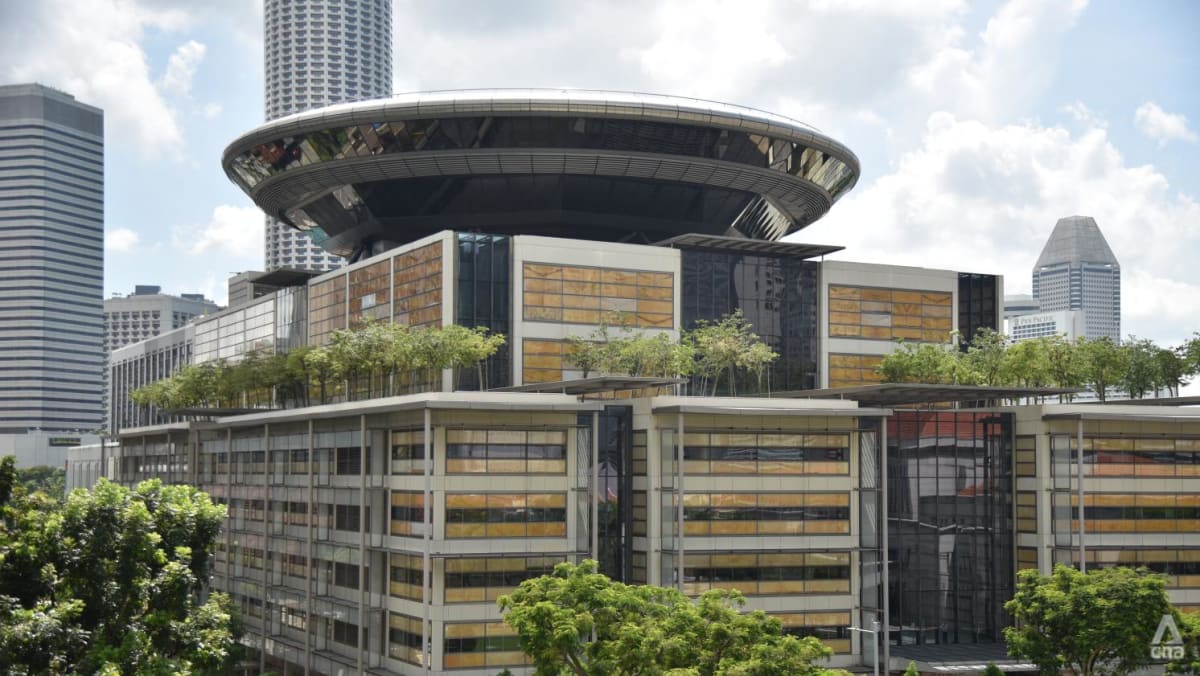
SINGAPORE: After a night of revelry with his friends, a man allegedly sexually assaulted a co-tenant who was sleeping in her room and raped her.
The man, a 33-year-old Filipino working in Singapore, claimed trial on Tuesday (Jun 27) to one charge of rape and another charge of sexual assault.
The accused’s name and the location of the alleged rape cannot be published due to a gag order protecting the victim’s identity.
According to a set of facts agreed on by the prosecution and the defence, the party took place on the night of Dec 24, 2018, continuing into the early morning.
The accused, the alleged victim and their other housemate had hosted the party in their shared flat, inviting 12 guests to eat, drink alcohol and sing.
The alleged victim, a 32-year-old woman, drank an estimated eight to 10 shots of whisky and was nodding off to sleep in the living room at about 2am on Dec 25, 2018.
Seeing that she was dizzy, the accused told her to sleep and helped her to her room. She vomited on the floor and called the accused, who helped her clean up her vomit.
After all the guests left the flat at about 3.50am, the accused headed back to his room where he lay on his bed and sent texts to his wife. His wife usually shared the room with him but had gone back to her country to give birth.
The accused went to the alleged victim’s room to check on her, before he hugged and kissed her.
According to the prosecution’s case, he was emboldened by the lack of response from the woman and sexually assaulted her before raping her. The woman woke up, realised she was being violated and started crying.
According to the prosecution, the accused then asked her in Tagalog: “Are you okay? Just forget about it.”
The woman, who kept her eyes closed, thought she recognised the accused’s voice. She tried to process what happened and confided in a friend about it over the phone before going back to sleep.
Another friend later spoke to her and reported the incident to the police.
The accused was at work when he received a call from his landlord, saying there were police officers at the flat. He went home, texting the woman multiple times and trying to call her 17 times but to no avail.
He was interviewed by police officers at a stairwell and later arrested.
Forensic DNA analysis found the accused’s semen on swabs taken from the woman during her medical examination.
The prosecution said the woman was fast asleep and not conscious at the time. She could not and did not consent to any sexual activity with the accused.
The accused is represented by lawyers James Chai and Joseph Chai.
PSYCHIATRIST WHO EXAMINED THE VICTIM TESTIFIES
The first prosecution witness to take the stand was Dr Zheng Zhimin, then a consultant psychiatrist at the Institute of Mental Health.
Dr Zheng, who is now in private practice, said she had interviewed five alleged victims of rape before and testified in the High Court for three of their cases, including about the effects of alcohol consumption.
The psychiatrist interviewed the woman in this case, who said she was awoken by the sensation of someone on top of her. However, she had difficulty opening her eyes as she was sleepy from the effects of alcohol.
In the month after the incident, the woman cried often, slept poorly and did not have a good appetite, the court was told.
She was no longer able to go out on her own, preferring the company of her friends and stopping her visits to the gym. She was diagnosed with adjustment disorder with a depressed mood.
The woman fulfilled some criteria for post-traumatic stress disorder and was not diagnosed with this condition.
EFFECTS OF ALCOHOL
Dr Zheng testified that alcohol had a general inhibitory effect on the brain, slowing down brain signals. It can result in changes in cognition, mood and behaviour.
She said it was possible that the woman suffered a memory gap or alcohol blackout that night because of how much she drank.
The alleged victim could not remember details such as how much exactly she drank, when she last drank and how she made her way back to her room.
She told Dr Zheng that the physical experiences felt “unreal” and the realisation that she was being taken advantage of sexually made her distressed.
“She was very shocked and very afraid to the point of not daring to open her eyes to identify the alleged perpetrator,” said the psychiatrist.
According to her, the alleged victim had the following thoughts: “Is this really happening”, “I wanted it to be a dream”, “I cannot imagine this happening to me” and “I thought I was safe in my own house”.
Dr Zheng said this was a flight response to danger – explaining that people usually have either a fight or flight response – which is a way the brain copes in such situations.
“She said she heard the person’s voice and recognised it to be her roommate, whom she knew to be married,” said Dr Zheng. This added to the woman’s shock.
The psychiatrist said it was not uncommon for her to see victims of rape not react or fight back like how one might traditionally expect them to.
She was unable to calculate the blood alcohol concentration in the woman at the time of the incident because of gaps in the woman’s memory.
Asked by the prosecution if it was possible for one to engage in consensual sex while asleep, using sleepwalking as a comparison, she said it was not possible.
“The differences are quite clear – in sleepwalking, it is essentially a sleep behavioural disorder. The person is not voluntarily sleepwalking,” said Dr Zheng, adding that sleepwalking is not “goal-directed”.
One would not be able to “engage meaningfully” in consensual sex if asleep because intercourse is “a goal-directed activity”, said Dr Zheng.
The prosecution pointed Dr Zheng to a report from the defence’s psychiatrist, who calculated the alleged victim’s blood alcohol level to be 160 milligrams to 200 milligrams per 100ml of blood.
Asked about his methodology in obtaining this figure, Dr Zheng said it would theoretically be correct if based on the number of drinks the woman said she drank.
However, the psychiatrist said she did not rely on this method as the blood alcohol sample she obtained came back “zero”, so no meaningful back calculation could be made.
The assumption was also based on what the alleged victim could recall, even though she could not remember how much she consumed exactly nor what time her last drink was.
“It would be overly simplistic to assume these would be the blood alcohol concentration levels,” said Dr Zheng.
The trial continues, with the prosecution set to call 29 witnesses to prove its case.

